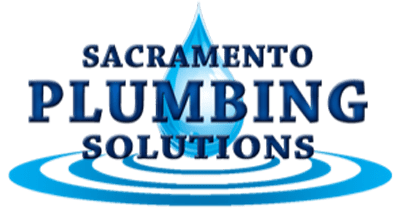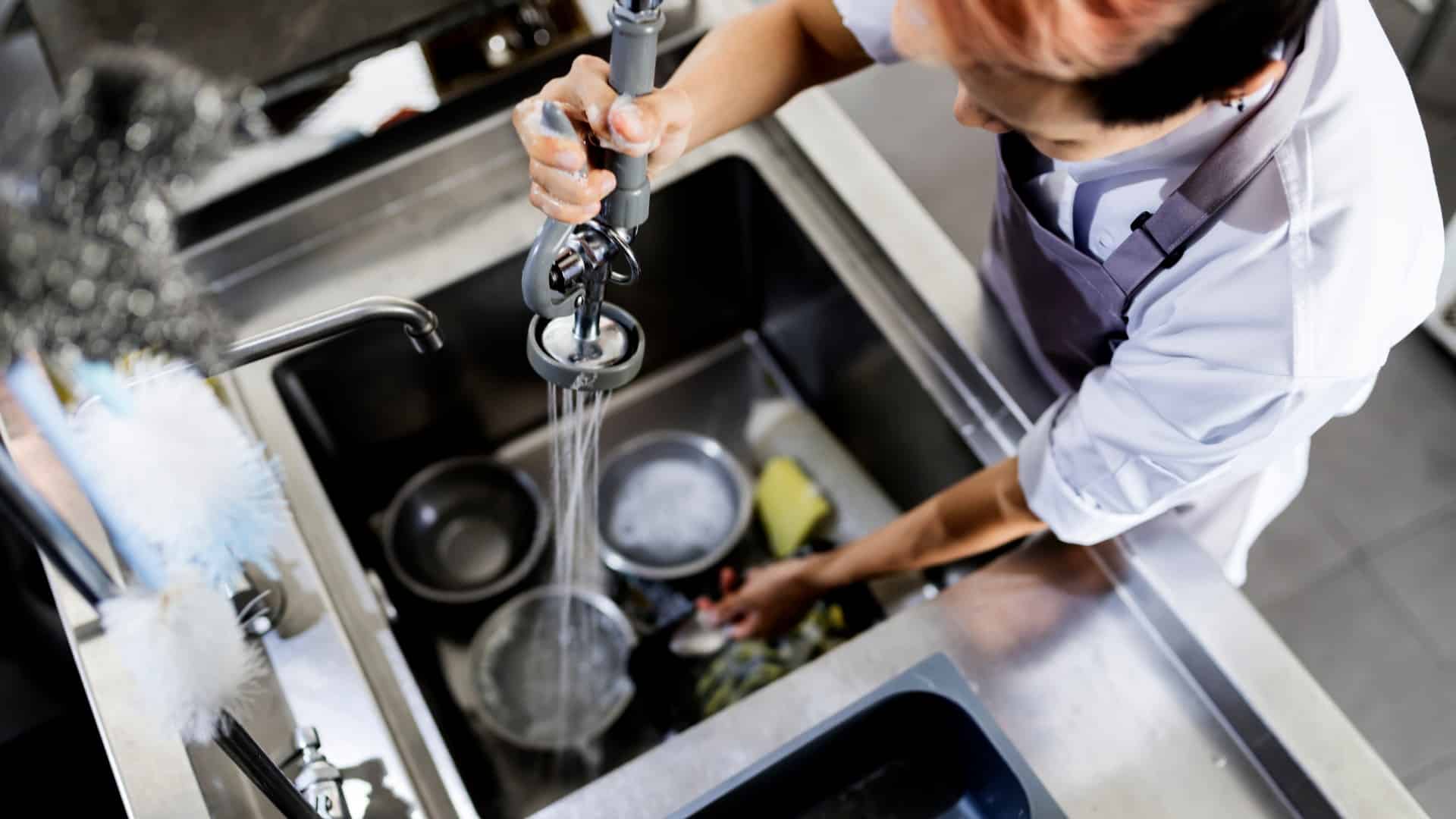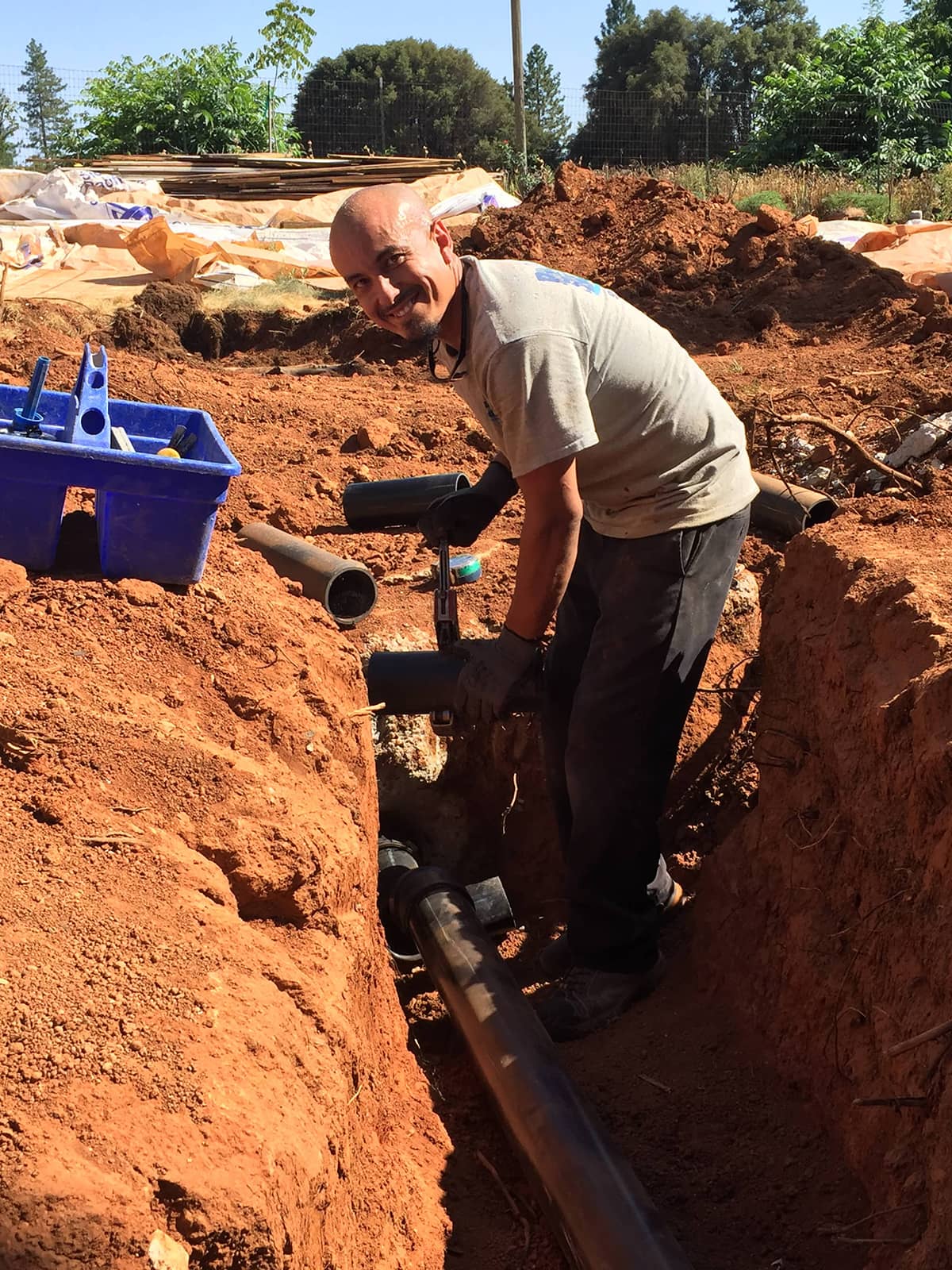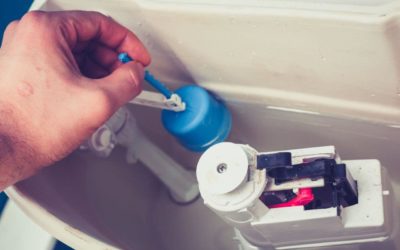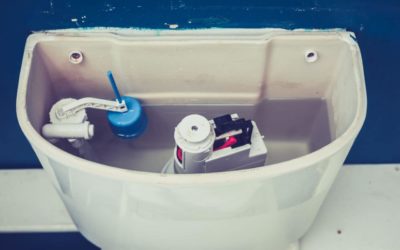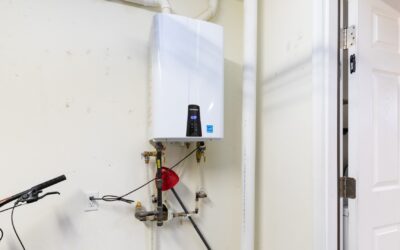I worked countless hours on commercial plumbing projects in my twenty years as a journeyman plumber. Many of those have been spent in commercial kitchens.
We all love going out for a good meal in a restaurant or staying in a nice hotel while traveling. But unless you manage one of these businesses, I bet you’ve never considered the resources required to keep them running, especially water.
Commercial kitchens use a lot of water, and a large amount of that water is used inefficiently or wasted altogether. Every gallon wasted is literally money down the drain for the business owner and another step closer to a rapidly growing water shortage, especially in states like California.
I want to share some insights on this topic. There are many steps that commercial kitchen owners, managers, and employees can take to improve water efficiency, reduce costs, and contribute to water conservation in the process. Let’s get into it.
Water Usage Challenges
The amount of water that commercial kitchens use is insane. It’s not their fault, it is what it is, but it’s still unbelievable.
A commercial kitchen can use up to three times more water per square foot than any other commercial space. I’ve heard numbers ranging between 5,000 to 20,000 gallons of water daily. That comes out to 2,000,000 to 7,500,000 gallons per year. To put it in perspective, the average American family uses twenty to seventy-five times less water—around 100,000 gallons per year.
Older kitchens, especially, are a water-efficiency nightmare with outdated equipment that guzzles more water than necessary. Then, there’s the challenge of balancing water efficiency with health and safety standards. Commercial kitchens are held to a high standard regarding cleanliness of both the food and the facilities.
Finally, there’s the issue of identifying where the water waste is even happening. Whether it’s a busy restaurant or a popular hotel, water is used in everything from cooking and cleaning to dishwashing, and that’s just the kitchen. We aren’t even considering the rest of the commercial plumbing, including public and private sinks, toilets, and showers. This makes keeping track of everything and targeting wastage nearly impossible.
So, how can commercial kitchens begin to tackle such a big challenge?
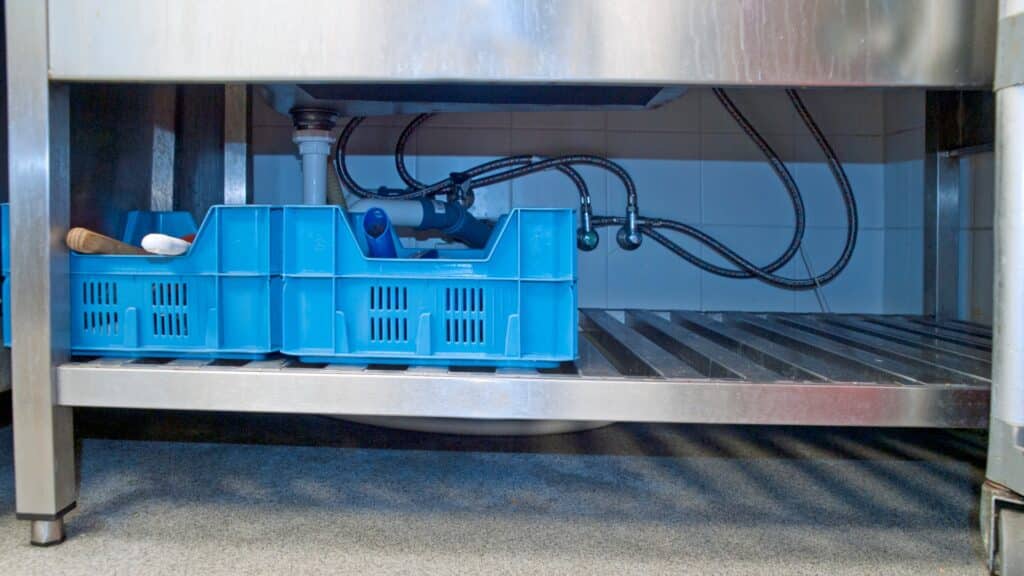
Smart Plumbing Fixtures
The good news is that the plumbing industry has benefited from technology, and some fantastic solutions exist to improve commercial water efficiency.
The best bet for tackling water waste in commercial kitchens is to use energy-efficient and smart plumbing solutions to regulate water usage so you don’t even have to think about it.
I’ve seen kitchens transform with these upgrades. One client reduced their water bill by almost 30% by switching to efficient fixtures and appliances. Here’s a list of smart solutions specific to kitchens. It’s by no means exhaustive, but it’s an excellent place to start:
- Low-flow faucets reduce water flow without compromising pressure, making them perfect for busy kitchens.
- Efficient pre-rinse spray valves will become your dishwasher’s best friend and cut down water use significantly.
- Modern energy-efficient dishwashers are designed to be more water and energy-efficient while cleaning your dishes very well.
- Automatic shut-off valves ensure that water flowing from faucets isn’t unnecessarily wasted.
- Water-efficient ice makers aren’t always associated with water usage, but they are essential in a commercial kitchen to produce ice more efficiently.
- Leak detection systems can save you thousands in water usage and damage repairs by catching small leaks early before they become huge problems.
Train Staff on Water Management
Training your staff to make small changes in daily habits can lead to noticeable savings.
Something as simple as turning off taps when they aren’t being used or only running dishwashers when full can make a huge difference. Creating a culture of water efficiency by making every team member aware of their responsibility toward sustainability and the consequences of ignoring these practices is key.
Here are a few ways I’ve heard of this being done:
- Turning off taps when not in use
- Only run dishwashers when full
- Regularly checking for leaks
- Creating water-efficient cleaning SOPs
- Monitor water bills
Your Plumber Can Seriously Enhance Water Efficiency
Here’s where my team and I come into play.
Every commercial kitchen is unique, and we work with our commercial clients to understand the specific needs and challenges they face.
Whether it’s retrofitting old fixtures or designing a new water-efficient kitchen from scratch, we know how to tailor the process to your requirements and execute it without interrupting operations.
Investing in a reliable, professional plumber isn’t an added expense. It’s an investment. We know how to save you money and pay for ourselves by making your kitchen efficient, environmentally friendly, and cost-effective.
Here’s a list of services to ask your plumber about:
- Plumbing Repair and Maintenance includes routine and emergency repairs to ensure all plumbing systems in your commercial kitchen function efficiently and reliably.
- Plumbing Installation and Replacement includes professional fitting and updating of new plumbing systems, which is crucial for the efficiency and compliance of a commercial kitchen’s water and waste management.
- Hydro-jetting is a powerful cleaning technique using high-pressure water to clear blockages and build-up in kitchen pipes, ensuring smooth and sanitary operations.
- Water Heater Repair and Maintenance is essential to keep hot water systems running efficiently, which is crucial for sanitation and cooking in a commercial kitchen.
- Sewer Line Services include inspecting, repairing, and maintaining sewer lines to prevent backups and ensure proper waste disposal in commercial kitchens.
- Plumbing Fixture Repair and Installation involved expert handling of sinks, faucets, and other fixtures to ensure they function correctly and efficiently in a high-demand commercial kitchen.
- Garbage Disposal Repair and Installation keeps garbage disposal units in optimal condition or installs new ones to handle kitchen waste efficiently and hygienically.
- Backflow Testing and Prevention are critical testing and preventive measures to protect the water supply from contamination, ensuring the safety and hygiene of a commercial kitchen.
- Piping and Repiping involves updating or replacing old pipes to ensure a reliable and efficient plumbing system free from leaks and corrosion.
Government Incentives and Regulations
I know at this point you’re probably thinking about how much this will cost you.
There’s no doubt. Creating a water-efficient kitchen is an investment but an ROI positive. Plus, most states provide incentives and rebates for businesses that implement water-efficient practices, allowing you to recover a large amount of your costs.
I’ve never heard a client complain after making these changes. There are simply too many benefits and almost no downside to making the switch.
Contact Sacramento Plumbing Solutions for All Your Commercial Plumbing Needs
To wrap it up, water-efficient commercial kitchens are not just an environmental or financial issue. They’re part of being a responsible business owner. It’s about leading by example and doing your part in preserving our most precious resource.
If you’re looking to make your commercial kitchen more water-efficient here in Sacramento, give us a call or schedule a free estimate. We’re here to help you every step of the way – from audits and consultations to installations and maintenance.
